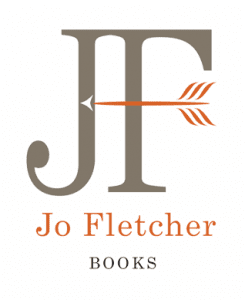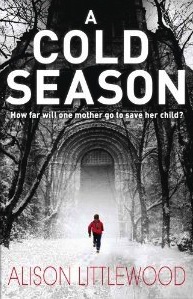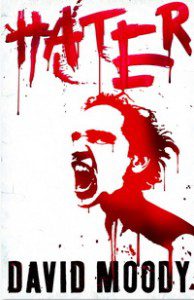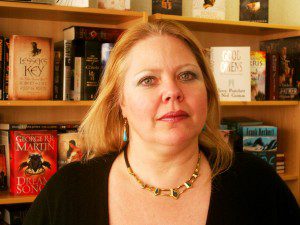Award winning publishing polymath and genre whiz extraordinaire Jo Fletcher sat down with This is Horror recently, to reveal all about her sparkling new fantasy/SF/horror imprint Jo Fletcher Books.
With an open-door policy and a broad mind, JFB has already put out some thrilling titles, ranging from alternate history epics like Aidan Harte’s Irenicon to ingenious retellings of Senegalese folk tales like Karen Lord’s Redemption in Indigo to straight-up horror fare like Tom Fletcher’s The Ravenglass Eye. Jo Fletcher has promised to tailor to readers of all deviant tastes…
Below she spills the beans on the ‘how’ and ‘why’ of setting up JFB’s, her objectives, the books due out from them this year, why she has an open door policy, the resurgence of horror, and the first book she fell hopelessly in love with.
 How and why did you set up Jo Fletcher Books?
How and why did you set up Jo Fletcher Books?
JF: The ‘why’ is easy: I was asked! Well, it’s a slightly longer story, of course: Mark Smith and Wayne Davies, who founded Quercus, worked at Orion some years ago, and I really got on with them – I admired their out-of-the-box thinking, their ‘can-do’ attitude and their infectious enthusiasm. So when Mark invited me to lunch in 2010, I thought it was just an old chums’ get-together . . . and it was, until he asked if I’d ever consider setting up a new genre list. I told him, absolutely honestly, that I’d already done that, a couple of times, and that I really didn’t think I had the energy or inclination to do it again. Then he said, ‘What about if it had your name on it?’ and I laughed and said, ‘Well, obviously that would be different!’ and he said, ‘That’s what I’m offering you: Jo Fletcher Books.’ And because they had done the same thing with Christopher Maclehose, the great and acclaimed publisher of literary and translated literature, some years previously (and it was the Maclehose Press who discovered Stieg Larsson) I realised this might possibly be real! And just as when Sue Fletcher, at the instigation of Malcolm Edwards, offered me the job of founding Headline’s SF/F list right at Headline’s start (Malcolm told her it was easier to teach a journalist who knew the field inside out how to be an editor than to teach an editor to love fantasy, SF and horror) I realised I was being offered on a silver platter everything I never knew I wanted. Believe me, I wouldn’t have left Gollancz for anything else; I’d spent 16 years there, and it’s become a tremendous powerhouse of a list!
So that’s the ‘why’; the ‘how’ is from January 2011 I read like fury, and I was lucky enough that a couple of agents I really trusted ( in the interests of full disclosure one being my husband, Ian Drury) had some new authors at exactly the right time – and because I was in the rare position of being able to move remarkably quickly – not a phrase you hear very often in publishing! – I was able to acquire some remarkable debut authors very early on. To be fair, a lot of agents sent me a lot of books almost immediately – after all, a brand new list with space for new authors is a rare and marvellous thing in publishing. But it wasn’t just agents; authors, both published and unpublished, came direct, mutual friends recommended people, and of course I found within days of the announcement I’d got a slush pile of quite overwhelming size. And once you have one book, they swarm . . .
What are your objectives, where would you like to see yourself going with the imprint?
JF: My objective is to publish the best books I possibly can, right across the whole breadth and width and depth of this astonishing genre in which we work. I’m sometimes asked why I’ve ‘limited’ myself to SF/F/H, especially since I have very ecelctic reading tastes myself, but I don’t see it that way. Writers can do anything they want within the elastic walls of the genre label – literary novels, thrillers, crime, romance, history, tragedy, comedy – you name it, you’ll find it somewhere in this glorious world.
Where do I see myself going? That’s actually a much harder question, because as everyone who working in any aspect of publishing knows, you rarely have time to actually look up over the parapet and look at the wider picture, and that’s certainly the case for me right now, because I have so much to do and, highly inconveniently, there are still only 24 hours in a day. I suppose if I’m honest, what I’d like is for writers in fifty years’ time to be saying, ‘I’ve always wanted to be published by Jo Fletcher Books’ exactly the same way now that writers say, ‘I’ve always wanted to be published by Gollancz’.
 You have an open door policy over at JFB’s, which is great for unagented writers, how many submissions do you receive weekly? Are you overloaded with material?
You have an open door policy over at JFB’s, which is great for unagented writers, how many submissions do you receive weekly? Are you overloaded with material?
JF: Even if I haven’t advertised it widely I have actually always had an open door policy wherever I’ve worked (ask Alastair Reynolds!); the problem is that most unagented material is unagented for a reason. But there’s the reason for looking: most is not all. When I started at Headline, all those years ago, I kept getting submissions from one particular writer, turning them down every time, and finally – it was probably the twelfth or thirteenth book he’d sent me – I bought a quartet from him, and Roger Taylor went on to be published by Headline long after I left (I think he had 14 books out from them in the end). I’ve not bought many authors from the slush pile, but those I have taken on, with one exception, have gone on to do really well. Alison Littlewood is not the only JFB author to start off by being unagented, and look how her debut novel’s started: A Cold Season was picked for the Richard and Judy Book Club! It’s a real accolade.
Of course, having an open-door policy does mean that my submissions pile is huge. Add to the normal agented submissions those that come in from the website, those who come in from Facebook or personal approach, and I’m looking at between thirty and sixty books a week. And that’s on a normal week . . .
So when I tell people I’m not going to get back to them immediately, they expect that to mean it might take me a week, and some people can get very aggressive when I explain I’m talking months here. Contrary to what they believe, I don’t like to keep people waiting, particularly if the answer’s no, but even if I were doing nothing but reading submissions I wouldn’t get through them all the day they come in.
Do you ever approach authors you love and ask if they’d be interested in submitting a manuscript?
JF: Oh yes – and it’s taken me a while to beat it into some people’s heads that I’m serious! Right back when Michael Marshall Smith’s first short story was published, I told him when he wrote his first novel, I wanted to see it. But he thought I was just being nice, and it ended up going to Jane Johnson at HarperCollins – mind you, she did a damn good job of it! But since then I’ve always made a point of saying: yes, I mean it! Of course, most people I love who I’m not already publishing are either contracted and/or published by people I wouldn’t dream of poaching from, even if I could.
You have a great roster of writers on your books – from established authors like Charlaine Harris to rising literary stars like Alison Littlewood. JFB publishes a wide variety of genre fiction. Do you think the term horror has become narrower?
JF: I want JFB to publish some of everything, because otherwise I’m going to get bored! No, I don’t think the term ‘horror’ has become narrower at all. I think that for a long time a lot of what might have been called horror twenty years ago has been camouflaged as something else as a way to get it under the ‘horror doesn’t sell’ wire, so perhaps it’s not being seen for what it really is. I actually think we’re looking at a bit of a resurgence (and not before time). I’ve talked about this before (and I think there’s been some misunderstanding of what I’ve said), but the situation, briefly, is this: in the late 1970s some really remarkable writers took off. They were writing horror, and it was being published in the mainstream – by which I mean in the general lists, not in genre imprints (not that there were very many at that time): I’m talking about people like Stephen King and Peter Straub and James Herbert, and others, some more literary, others more visceral. As they took off, so lots of other people started getting horror fiction published, and publishers looked at what was selling, as we always do, and said, ‘Yes, we’ll have some more of that.’ So what happened was exactly what happens when one type of book starts to sell really well: you had some very canny publishing, but you also had editors who really couldn’t tell a good horror novel from a bad putting out anything they could get their hands on.
 At the same time, some publishers made the decision to break out the horror into separate imprints (so effectively they could publish twice as many titles a month). And this went on for some years, until finally readers decided that however wonderful the new Angela Carter book, or Clive Barker novel, they couldn’t bear another haunted house story, or serial-killer-back-from-the-dead tale, and almost overnight horror died. For those of us working in the field at the time it was a real tragedy, because it took some damn fine writers down with it. But it didn’t take everyone down: some were bestsellers, and that’s a whole different category; they continued to get published, even if what they were writing had previously been categorised as horror. And some of the writers who’d previously been categorised as horror tweaked what they were doing so it could be called ‘dark fantasy’ or ‘suspense’ or whatever. And new writers continued to come along too, writing dark stuff, who managed to find their way into other genres. But in the main you could not get a straightforward ‘horror’ novel onto a general fiction or genre list for love nor money. And yes: there were exceptions – there are always exceptions to every rule – but none of them led to the great resurgence that horror fans were hoping for.
At the same time, some publishers made the decision to break out the horror into separate imprints (so effectively they could publish twice as many titles a month). And this went on for some years, until finally readers decided that however wonderful the new Angela Carter book, or Clive Barker novel, they couldn’t bear another haunted house story, or serial-killer-back-from-the-dead tale, and almost overnight horror died. For those of us working in the field at the time it was a real tragedy, because it took some damn fine writers down with it. But it didn’t take everyone down: some were bestsellers, and that’s a whole different category; they continued to get published, even if what they were writing had previously been categorised as horror. And some of the writers who’d previously been categorised as horror tweaked what they were doing so it could be called ‘dark fantasy’ or ‘suspense’ or whatever. And new writers continued to come along too, writing dark stuff, who managed to find their way into other genres. But in the main you could not get a straightforward ‘horror’ novel onto a general fiction or genre list for love nor money. And yes: there were exceptions – there are always exceptions to every rule – but none of them led to the great resurgence that horror fans were hoping for.
In the meantime, the small presses and independent presses, in the UK, the US and elsewhere, have been doing a very good job of nurturing young talent, so that now there are signs that the very word horror is no longer going to send booksellers screaming through the aisles, there are people out there who have learned how to write by being published in the small presses. I found and published Joe Hill because Stephen Jones told me he was putting Joe into Best New Horror and I had to take him seriously and Peter Crowther told me he was brilliant and gave me a proof of his first collection that PS, Crowther’s independent press, was publishing. I’m not sure, even as wonderful a writer as he is, that I could have got him through the publishing meeting five years earlier. Same with David Moody and Sarah Pinborough: the time was right.
All of which has gone a little way away from your question, but now I’m coming back to it: I think if you look at Pinborough’s amazing Dog-Faced Gods trilogy you’ll see it’s very different from David Moody’s Hater and Autumn series, which are nothing like Heart-Shaped Box which in turn bears no resemblance to Alison Littlewood’s A Cold Season. That’s just looking at four authors I’ve published recently, but I think it’s indicative of the general market: yes, there’s a plethora of paranormal romances out there that technically could be called horror, and there’s as much again urban fantasy that dwells on the darker edges of the city. But that’s not all there is, and that’s my point: the fantasy field encompasses horror, and the boundaries are nebulous, but the horror field itself is as wide as the ocean, and I do think we’re seeing some very interesting work coming out of it.
ALAN KELLY










